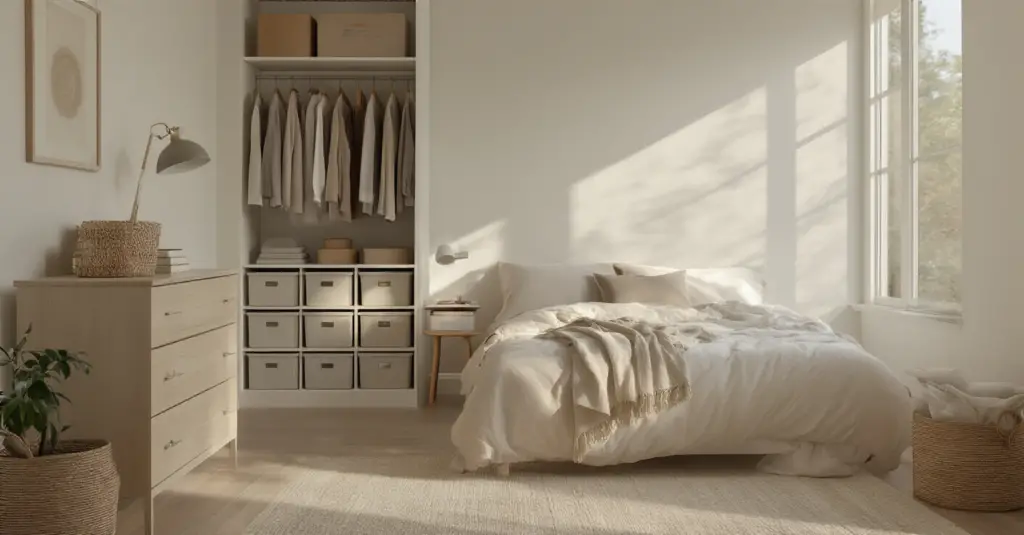Can we talk about why everyone gets bedroom organization completely wrong? They treat it like a chore. Like it’s about buying plastic bins and being miserable. It’s not. Your bedroom is your personal recharging station. It’s the command center where you power down so you can power up for the important stuff—hosting an epic game night, throwing a killer party, or just being a functional human being. If your sanctuary is a disaster zone of clothes, cables, and clutter, you’re running on low battery 24/7.
I used to think my chaotic bedroom was just a quirk. Then I spent a weekend trying to find a specific HDMI adapter I knew I owned and nearly tore the room apart. I was late, stressed, and it dawned on me: this chaos wasn’t just in my room, it was in my head. A messy space kills your energy. So, let’s ditch the corporate-speak and the sad, beige storage boxes. Here’s the real story on how to engineer a bedroom that actually serves you, so you can get back to what you love: bringing people together and creating amazing memories.
Foundation First: Planning Your Bedroom’s Storage Potential (Part 1)
Before you buy a single thing, you need a blueprint. You wouldn’t build a home theater by just throwing speakers in a room, right? You map it out. You figure out the acoustics, the wiring paths, the sightlines. Your bedroom storage is the same deal. This is the strategic pre-game where you figure out what you’re actually dealing with. Get this part right, and everything else is a cakewalk.
1. Conduct a Ruthless Decluttering Session to Identify Essentials
Everyone talks about “tidying up,” which is total BS. Tidying is just hiding your mess. What you need is a purge. I’m talking about a ruthless, no-mercy audit of every single thing you own. If you haven’t used it, worn it, or loved it in the last year, it’s just taking up precious bandwidth in your life. The goal isn’t to find a home for everything; it’s to get rid of the stuff that doesn’t deserve a home in your space.
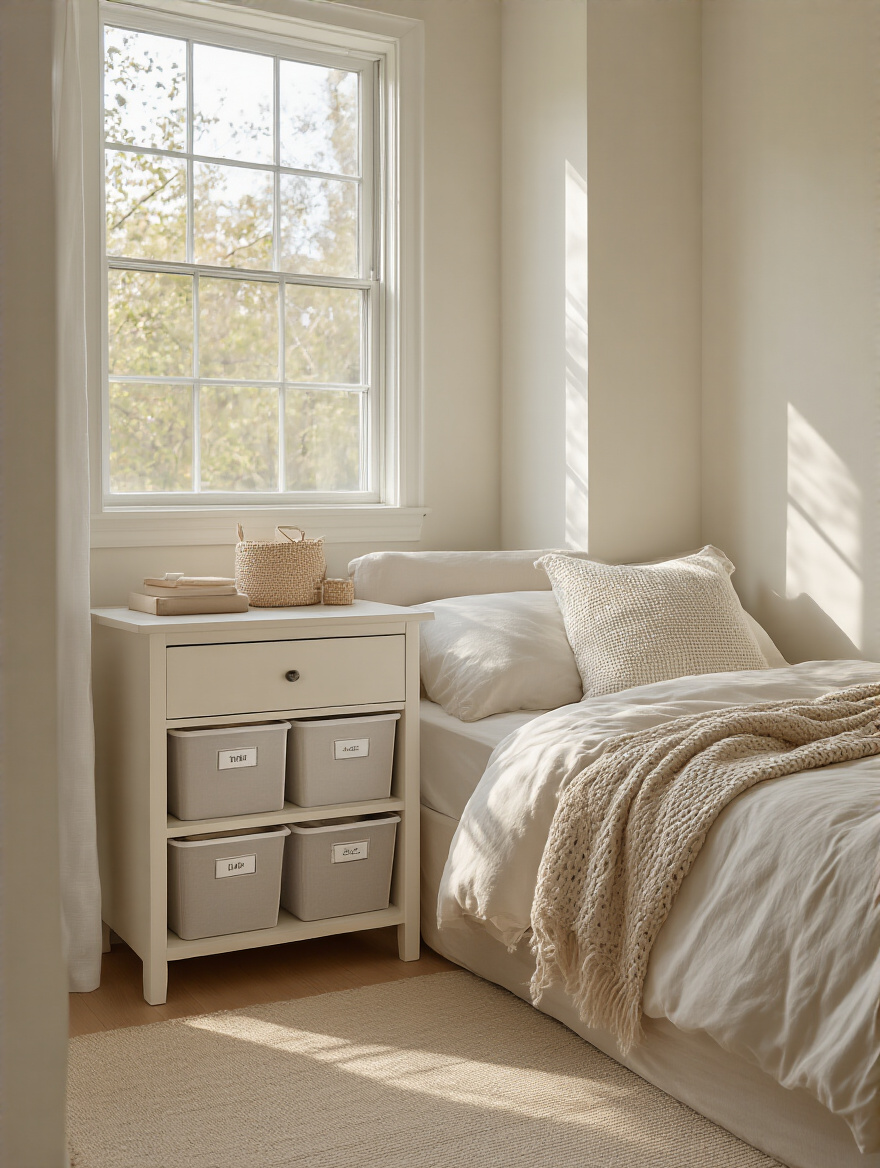
Think of it like cleaning up a bloated hard drive. You don’t just rearrange the junk files; you delete them to free up processing power. One of my clients spent a fortune on a custom closet, then filled it with clothes from ten years ago. It looked neat, but it was still useless. Start with one drawer. Empty it. If an item doesn’t serve the person you are today, it’s out. Be brutal. The reward is a space that feels lighter and a brain that feels clearer.
2. Measure Every Available Space Precisely for Future Furniture Fits
Once you’re left with only the good stuff, you need data. Accurate data. Don’t just eyeball it. Grab a laser measure—they’re cheap, cool, and way more accurate than a floppy tape measure. This is the calibration phase. You need to know the exact dimensions of every wall, nook, and cranny. How high is the ceiling? Where are the outlets? How far does the closet door swing open? Every millimeter counts.
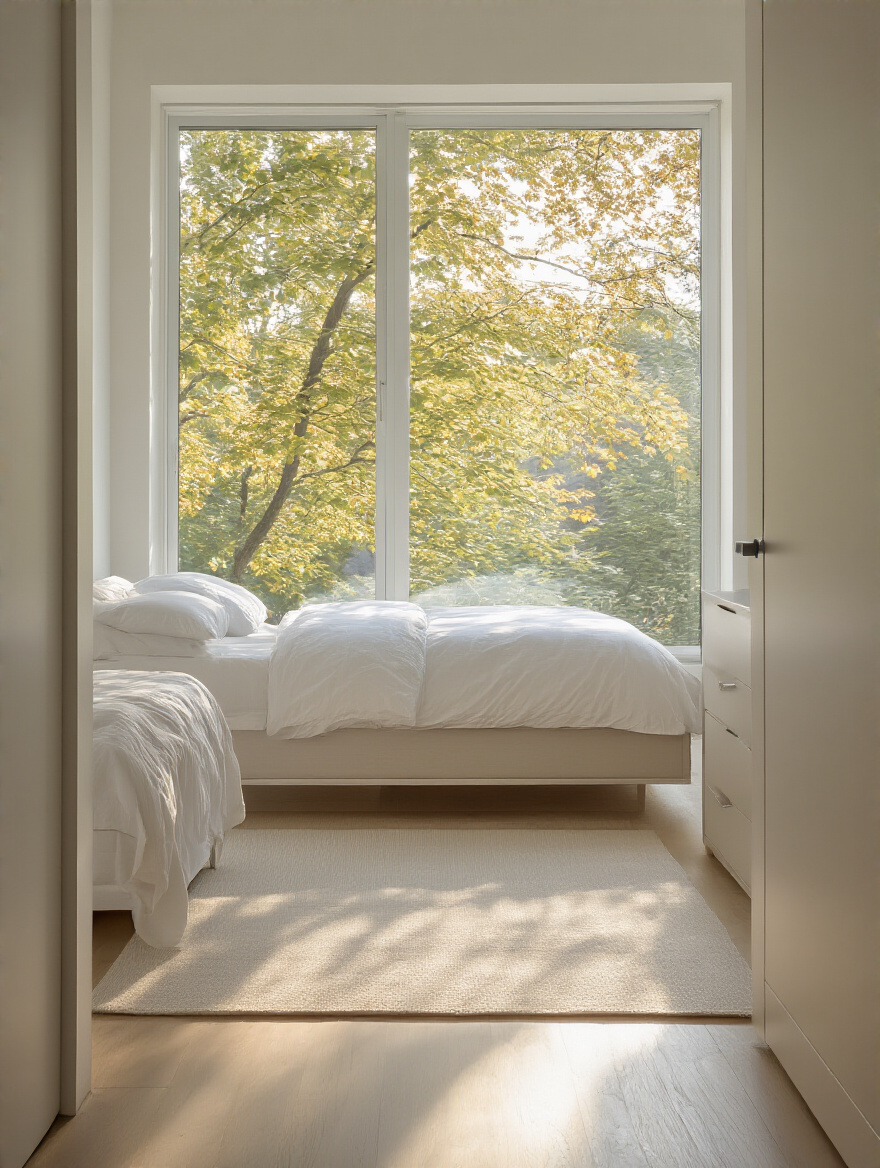
This step prevents the soul-crushing experience of ordering a perfect dresser online, waiting a week for it to arrive, and discovering it’s two inches too wide. Trust me, I’ve seen it happen, and it’s a tragedy. Use an app like RoomSketcher or Magicplan to create a digital twin of your room. It feels like a cool tech project, and it gives you a sandbox to play in without moving an ounce of heavy furniture.
3. Map Out Storage Needs Based on Item Category and Frequency of Use
Now you get to be the architect of your own efficiency. Don’t just shove things where they fit; give them a home based on how you actually live. I call this “zoning your gear.” Your everyday items—the clothes you wear constantly, your phone charger, your watch—are your “daily drivers.” They need to be in what organizers call “prime real estate”—top drawers, eye-level shelves, the nightstand. They should be effortless to grab.
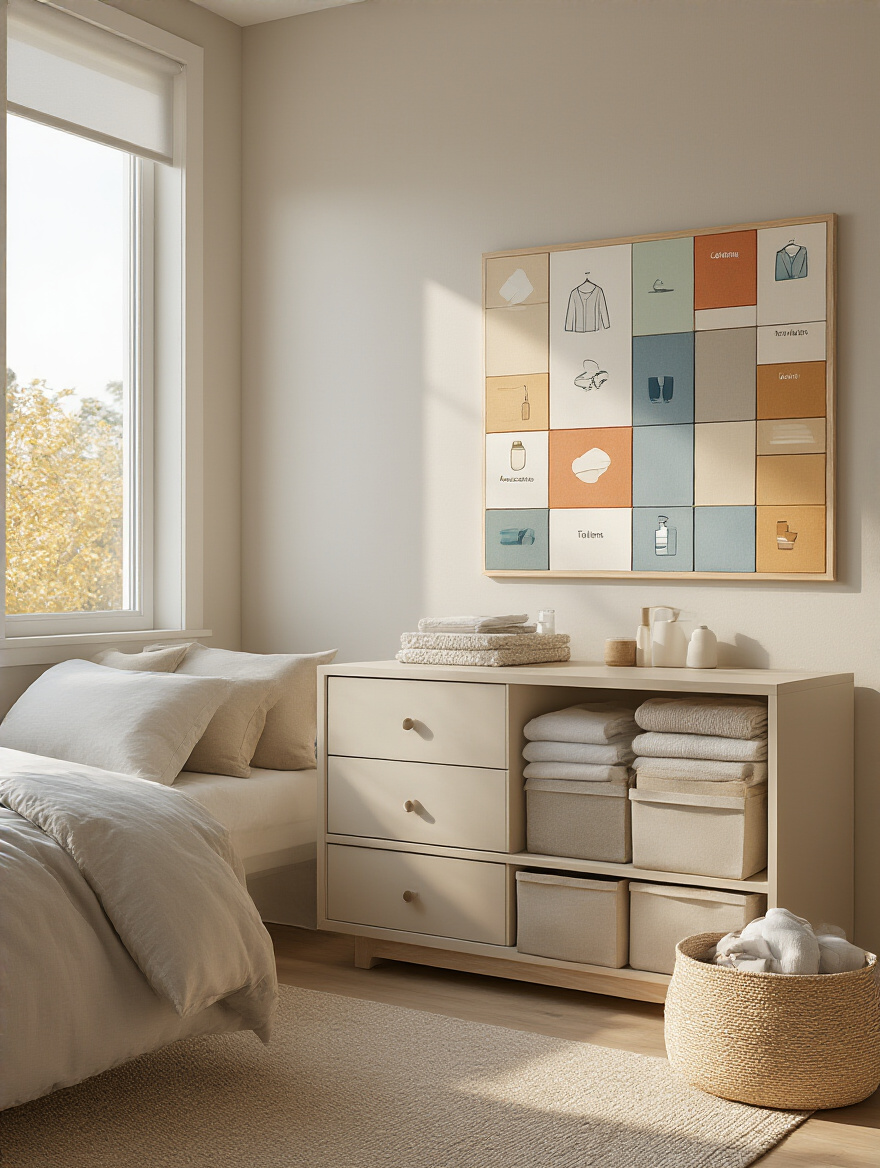
Less-used items, like seasonal clothes or that extra duvet for guests, can go into secondary storage—under the bed, on high shelves, in the back of the closet. Think of it like a sound mixer’s setup. The faders you use for every song are right at your fingertips. The obscure effects processors you use once a year are tucked away in a rack. Your bedroom should be just as intuitive. Group similar items together and map out where each “zone” will live.
4. Define Your Storage Style: Aesthetically Pleasing vs. Purely Functional
People love to frame this as a choice: Do you want it to look good, or do you want it to work? That’s a false dichotomy. The best entertainment systems are the ones that blend seamlessly into the decor, enhancing the experience without dominating it. Your storage should do the same. It should be an integrated part of your room’s vibe, not a clunky afterthought.
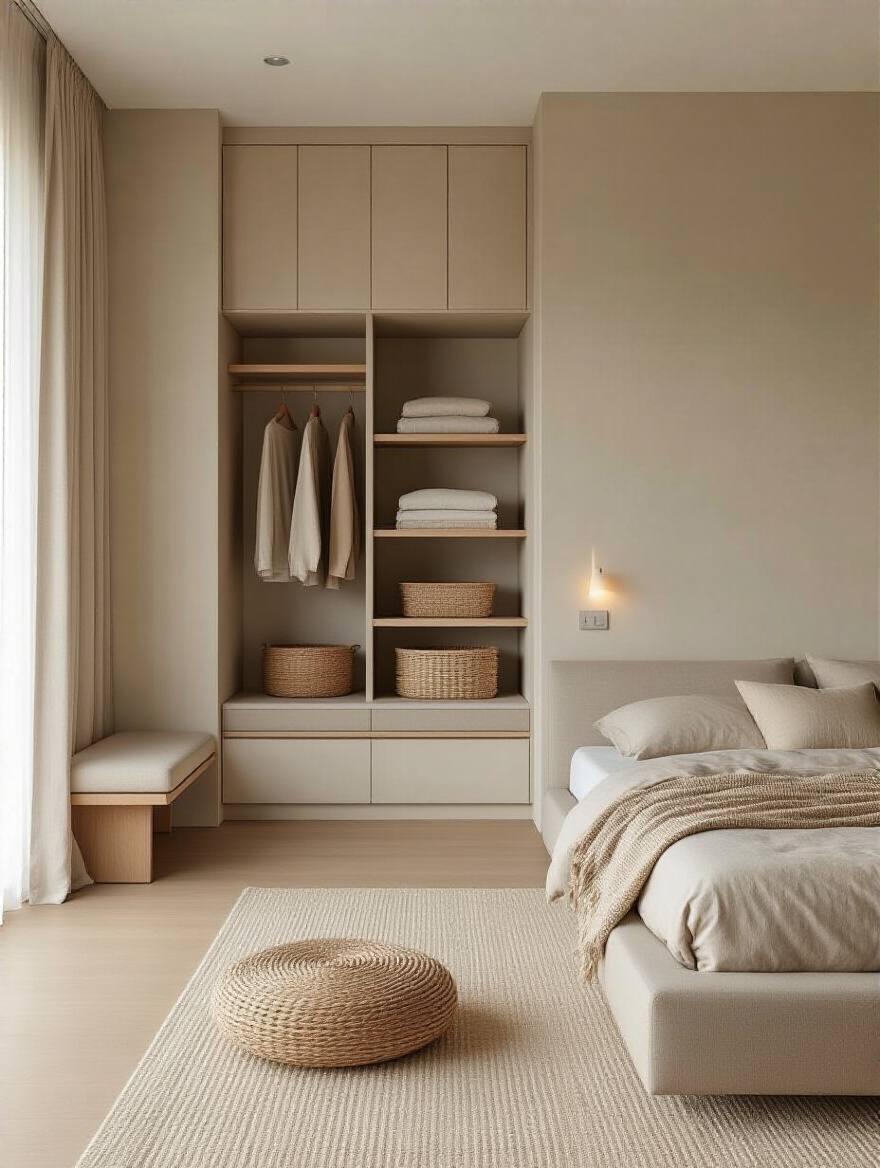
So, what’s your story? Are you a minimalist who wants everything hidden behind sleek, handle-less cabinets? Awesome. Are you a collector who wants to display your sneakers or vinyls on cool floating shelves? Do it. The goal is to choose solutions that serve a function while matching your personal aesthetic. Woven baskets can hide clutter while adding warmth. A sleek, modern cabinet can store your junk while looking like a piece of art. Your storage should be a supporting actor that makes the star—your life—look better.
Foundation First: Planning Your Bedroom’s Storage Potential (Part 2)
Okay, so for some reason, the original guide made this a whole separate section for just one item. Let’s just call this the final step in our blueprint phase. It’s the moment you bring all that planning together into a visual that you can actually work from. It’s the most important part before you spend any money.
5. Create a Floor Plan Sketch to Visualize Layout Options
This is where all your hard work—decluttering, measuring, zoning—comes to life. Take those measurements and your techy room map and start playing. Think of it as your schematic. This is where you test layouts without breaking a sweat. Drag and drop a virtual dresser, see how it impacts the flow. Try the bed on a different wall. See if a tall, narrow bookshelf makes more sense than a short, wide one.
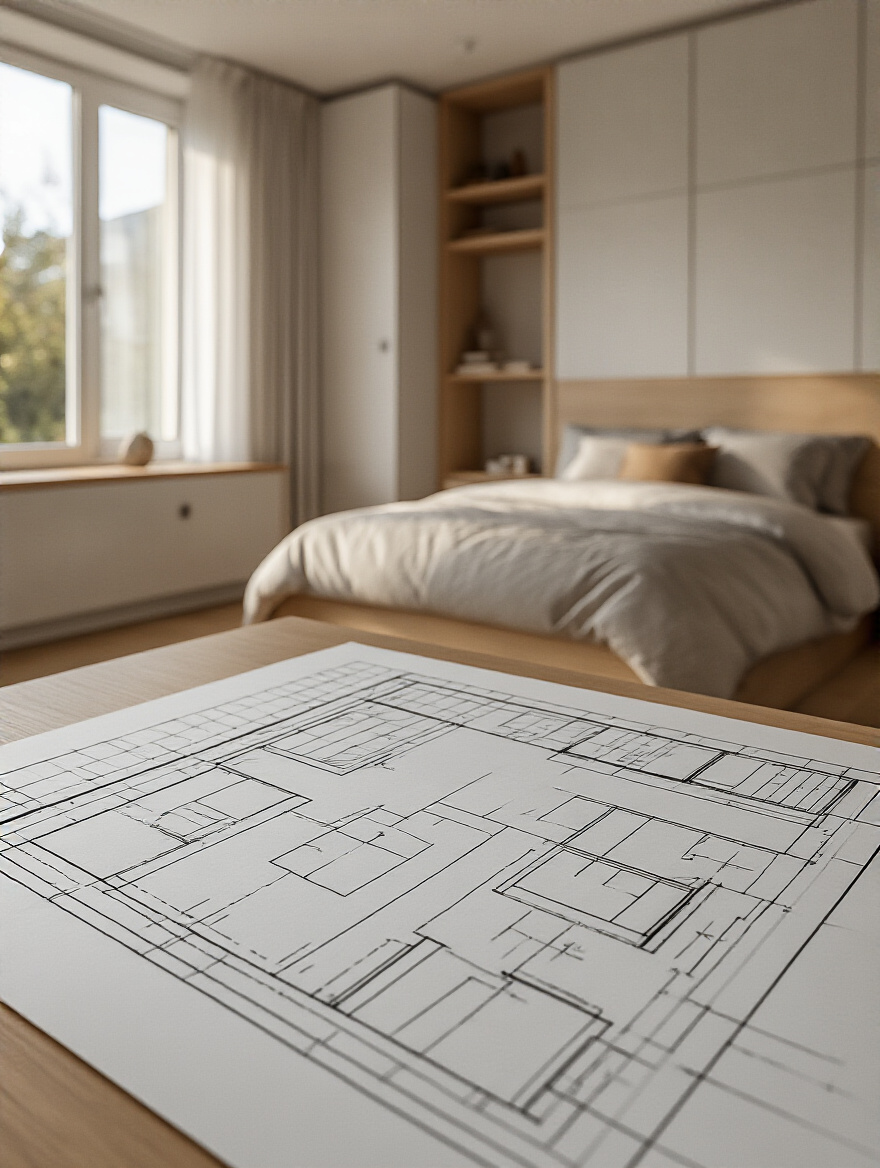
This is your chance to fail cheaply. You’ll discover that your dream wardrobe blocks the window, or that a storage bench at the foot of the bed makes the room feel cramped. These are amazing discoveries to make on a screen instead of in your actual room after three hours of assembly. You can use old-school graph paper, but the apps make it way more fun. You’re not just planning storage; you’re designing a better user experience for your own life.
Core Furniture & Closet Optimization Strategies (Part 1)
Alright, blueprint’s done. Now it’s time to upgrade your core hardware. We’re talking about the big pieces of furniture that are probably already underperforming. Your bed, your closet, your dresser—they’re all capable of so much more. Let’s mod them for maximum performance.
6. Utilize Under-Bed Storage Drawers or Lift-Up Beds for Bulky Items
The space under your bed is the subwoofer of storage—powerful, hidden, and perfect for the heavy stuff you don’t need every day. Don’t just shove random cardboard boxes under there to collect dust bunnies. Get intentional. Rolling drawers are a solid upgrade, but if you really want to level up, look at a hydraulic lift-up bed frame. The entire mattress lifts, revealing a massive, dust-free storage cavity.
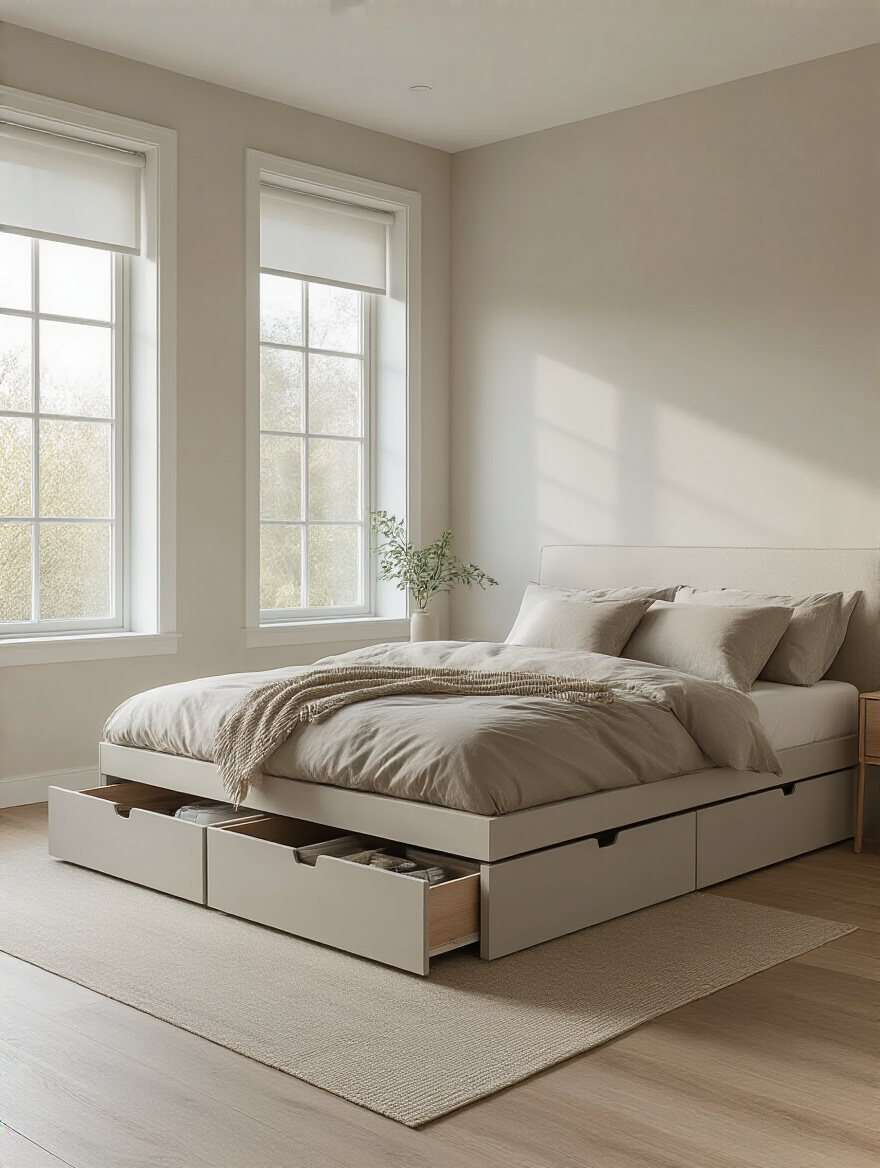
This is where you archive your life: seasonal clothing, extra bedding, luggage, even your old comic book collection. By moving all that bulky gear into this hidden compartment, you free up massive amounts of prime real estate in your closet and dresser for the things you actually need access to. It’s a game-changer for keeping your primary storage clean and hyper-organized.
7. Install Custom Closet Systems to Double Hanging and Shelf Space
Off-the-shelf closets with a single rod and a shelf are a crime against organization. It’s like having a gigabit internet connection and only using it to check email. A custom closet system is an investment, but it’s like building a bespoke media server—the performance is in another league. It’s designed specifically for your stuff.
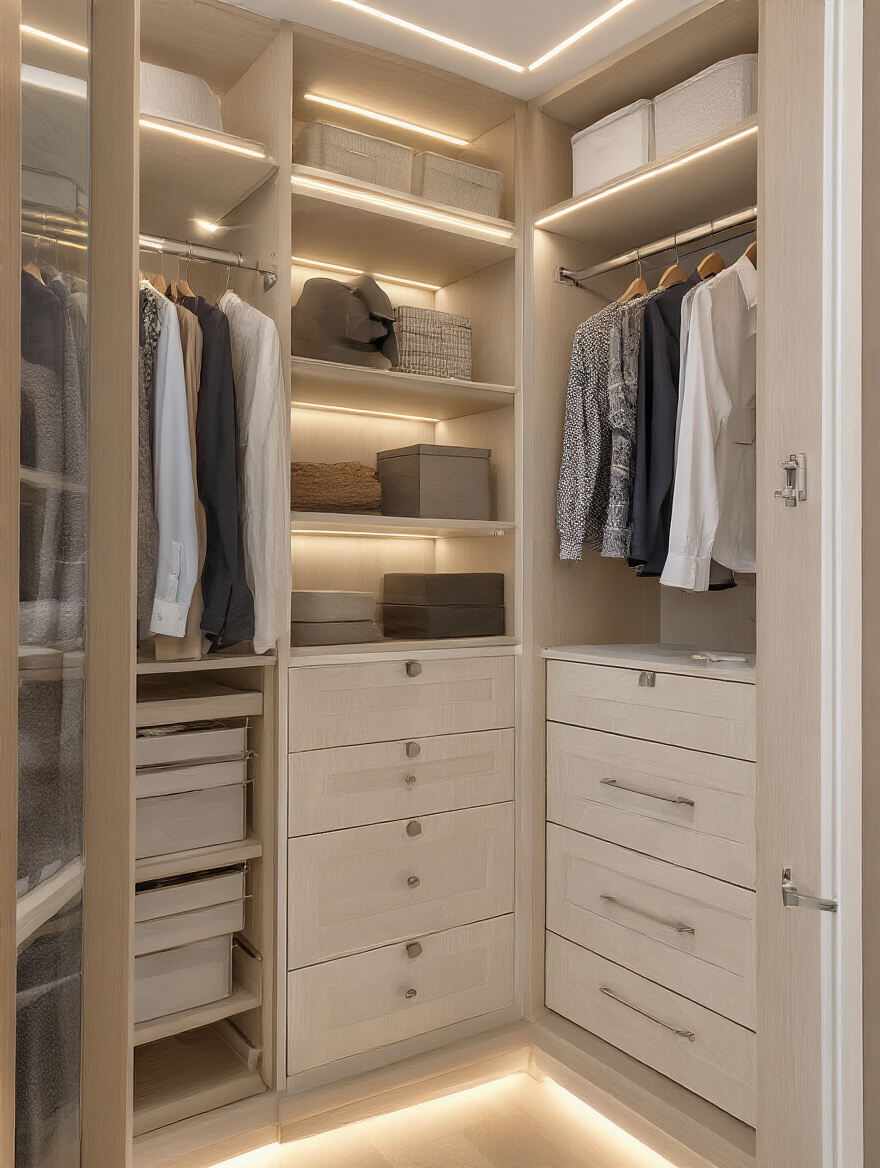
You get double hanging rods for shirts and pants, drawers for folded items, and shelving that goes all the way to the ceiling. No wasted space. You can map it out yourself with systems like IKEA’s PAX planner or bring in a pro. The end result is a closet that can hold twice as much stuff in a way that’s so organized, getting dressed in the morning feels less like a frantic search and more like browsing your own personal boutique.
8. Integrate Multi-Functional Dressers with Deep, Organized Drawers
Think of your dresser as more than just a box for clothes. It should be the Swiss Army knife of your bedroom. Modern dressers can come with all sorts of integrated features, from hidden jewelry compartments to built-in charging stations with slick cable management cutouts. Some even have a top drawer that folds out into a small laptop desk.
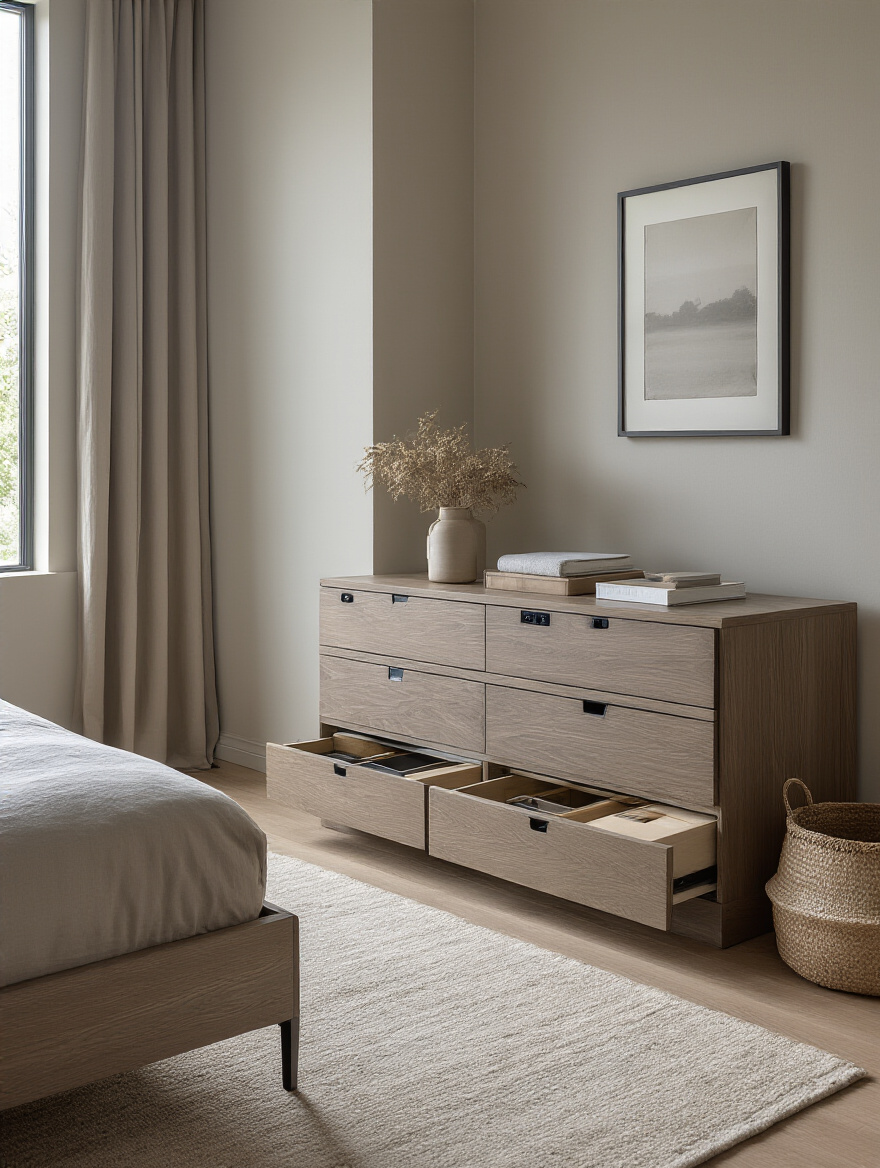
The key is to look for deep drawers and then, crucially, partition them with dividers (more on that later). A deep drawer without organization is just a deeper mess. But a well-organized, deep-drawer dresser with smart features is a powerhouse that consolidates your storage and tech needs into one clean, efficient footprint. It’s about getting more function out of fewer pieces of furniture.
9. Employ Door-Mounted Organizers for Shoes, Accessories, and Small Items
The back of your door is the ultimate patch panel for your life. It’s pure, untapped vertical real estate. A simple over-the-door organizer is one of the most cost-effective, high-impact storage hacks you can deploy. It’s perfect for the stuff that clutters up surfaces and has no other logical home.
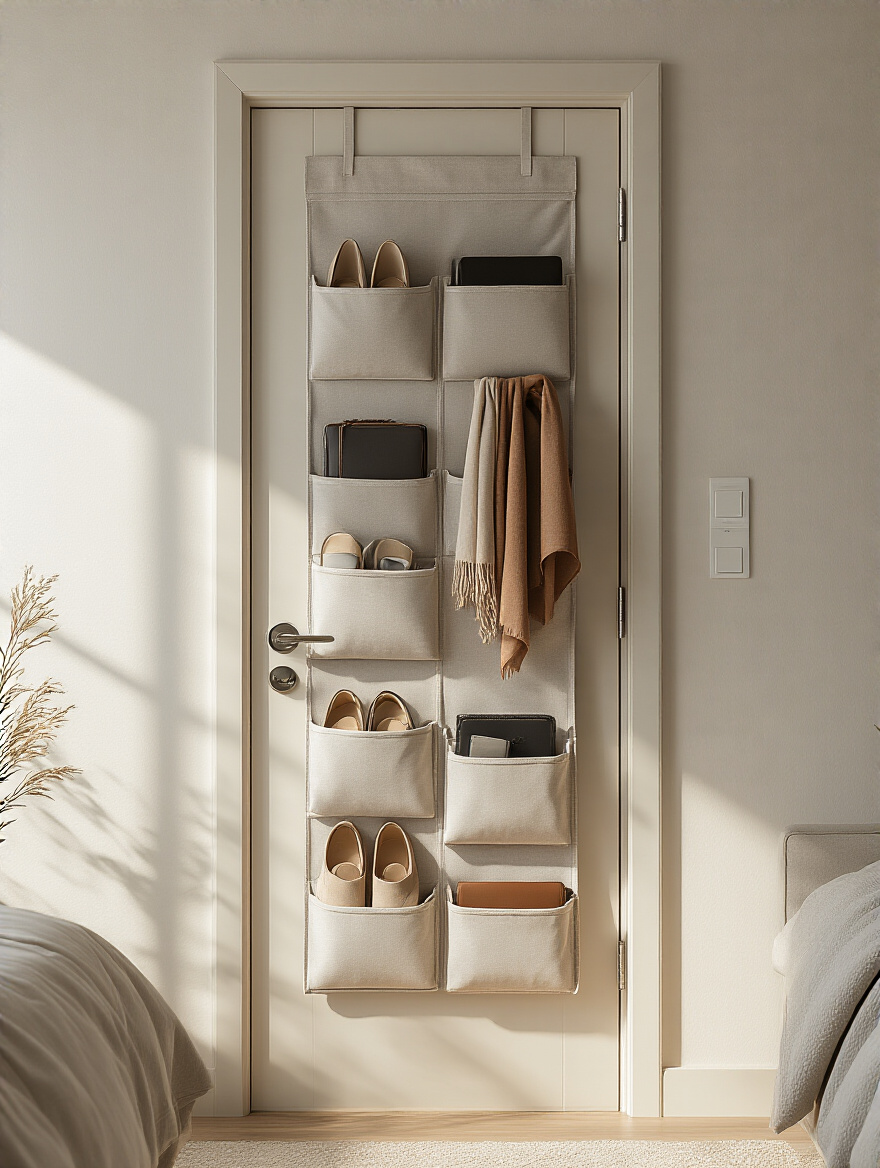
Use it for shoes, belts, scarves, or my personal favorite: tech accessories. All those random cables, adapters, and power bricks that usually live in a tangled mess in a drawer? Give them each their own pocket. You can see everything at a glance. No more digging. It’s a quick, cheap, and ridiculously effective way to clear clutter and organize the small, annoying items that cause the most chaos.
Core Furniture & Closet Optimization Strategies (Part 2)
Here we are again with another tiny section. This one focuses on the piece of furniture that’s probably closest to you for eight hours a day, and it’s almost always a complete disaster. Let’s fix that.
10. Optimize Nightstands with Built-In Storage or Tiered Shelving
Your nightstand should be your personal command center, not a dumping ground for last night’s water glass and a stack of mail. Most nightstands are just a flat surface on legs, which is a massive waste of potential. Upgrade to a nightstand with actual storage—drawers, a cabinet, or multiple shelves. This immediately moves the clutter off the surface and into a concealed, organized home.
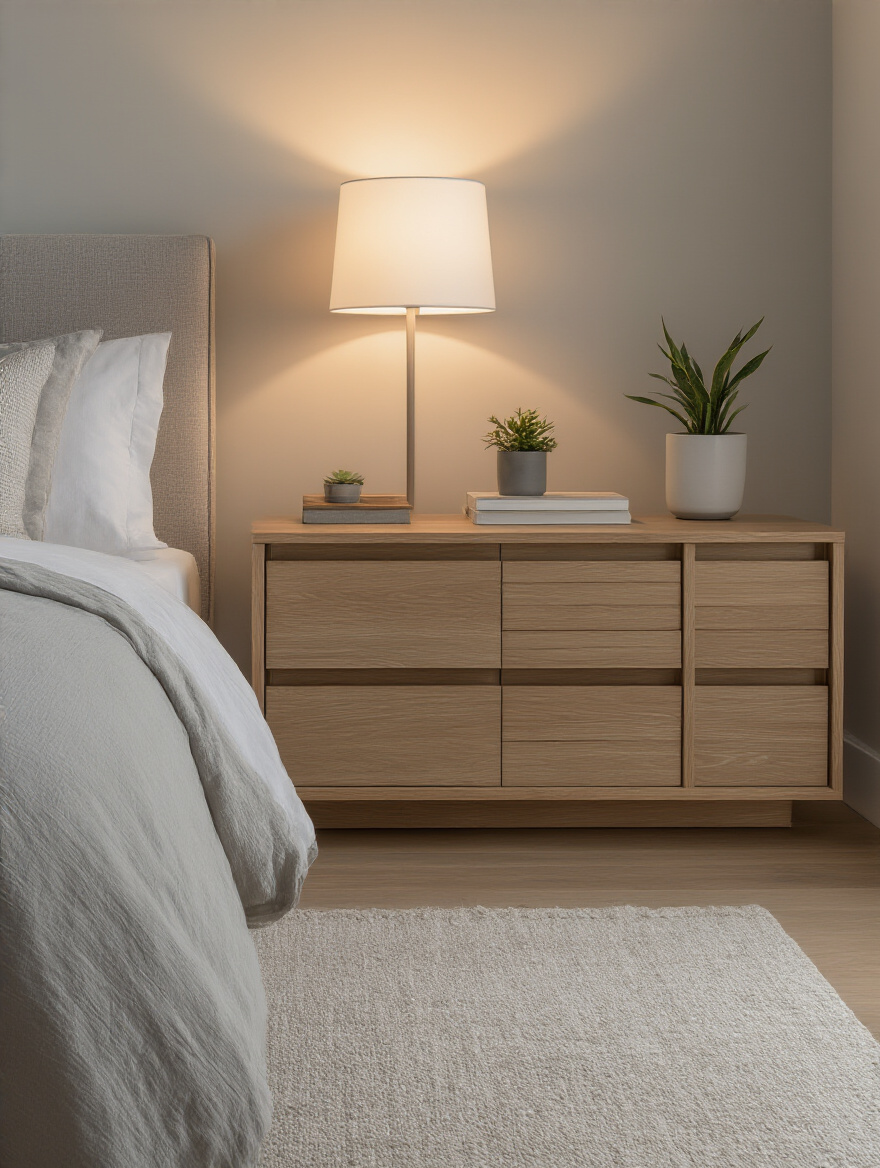
Look for models with built-in USB ports and cable management channels to create a clean, dedicated charging station. A good nightstand gives you a home for your book, your reading glasses, your charging phone, and maybe a small drawer for personal items. Everything you need is within arm’s reach but tucked away, leaving the surface clear and calm. It’s a small change that makes a huge difference in how peaceful your room feels right before you go to sleep.
Unlocking Hidden Spaces and Vertical Solutions
Okay, the main hardware is optimized. Now we’re going into “hacker mode.” It’s time to find the hidden storage potential in your room. We’re talking about using vertical space, awkward corners, and clever furniture to find more “bandwidth” for your stuff where you thought there was none.
11. Implement Floating Shelves Above Bedside Tables or Desks for Display and Storage
Walls are not just for posters. They are blank canvases for storage. Floating shelves are the MVP of vertical solutions because they’re sleek, minimalist, and incredibly versatile. Install a few above your desk or nightstand to get books, speakers, and other items off your work surface and into the air. This instantly makes the area feel bigger and less cluttered.
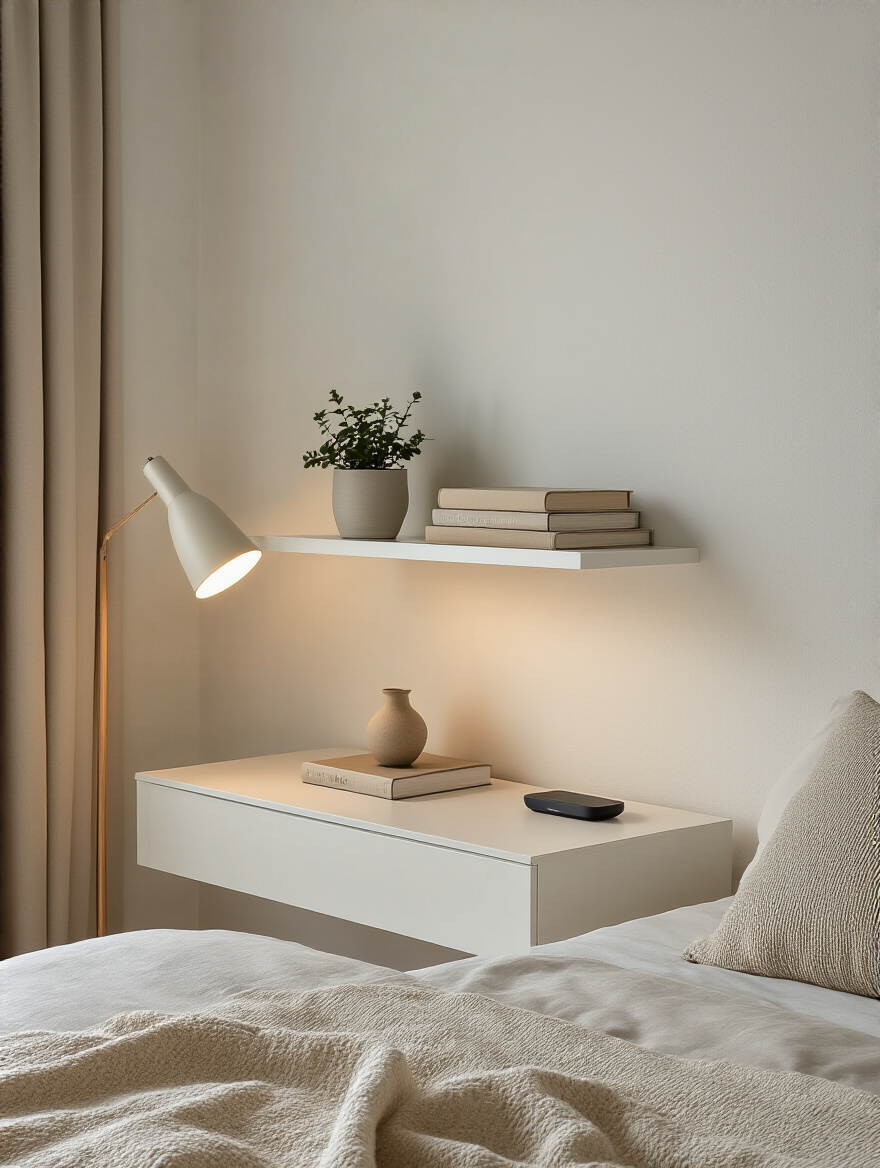
This is also a fantastic way to blend function with personal style. Use them to store practical things, but also use them to display things that bring you joy—your favorite collectibles, a cool plant, or a piece of art. It’s storage that doubles as a curated display of your personality, which is the ultimate win-win for a space that should feel like you.
12. Add Wall-Mounted Baskets and Hooks for Accessories and Lightweight Clutter
For all the “in-between” stuff that you’re constantly picking up and putting down, wall-mounted hooks and baskets are your grab-and-go docks. Think about the path you walk when you enter your room. That’s the perfect place for a few stylish hooks for your keys, your bag, your headphones, or the hoodie you always wear. It stops you from dumping them on the floor or the bed.
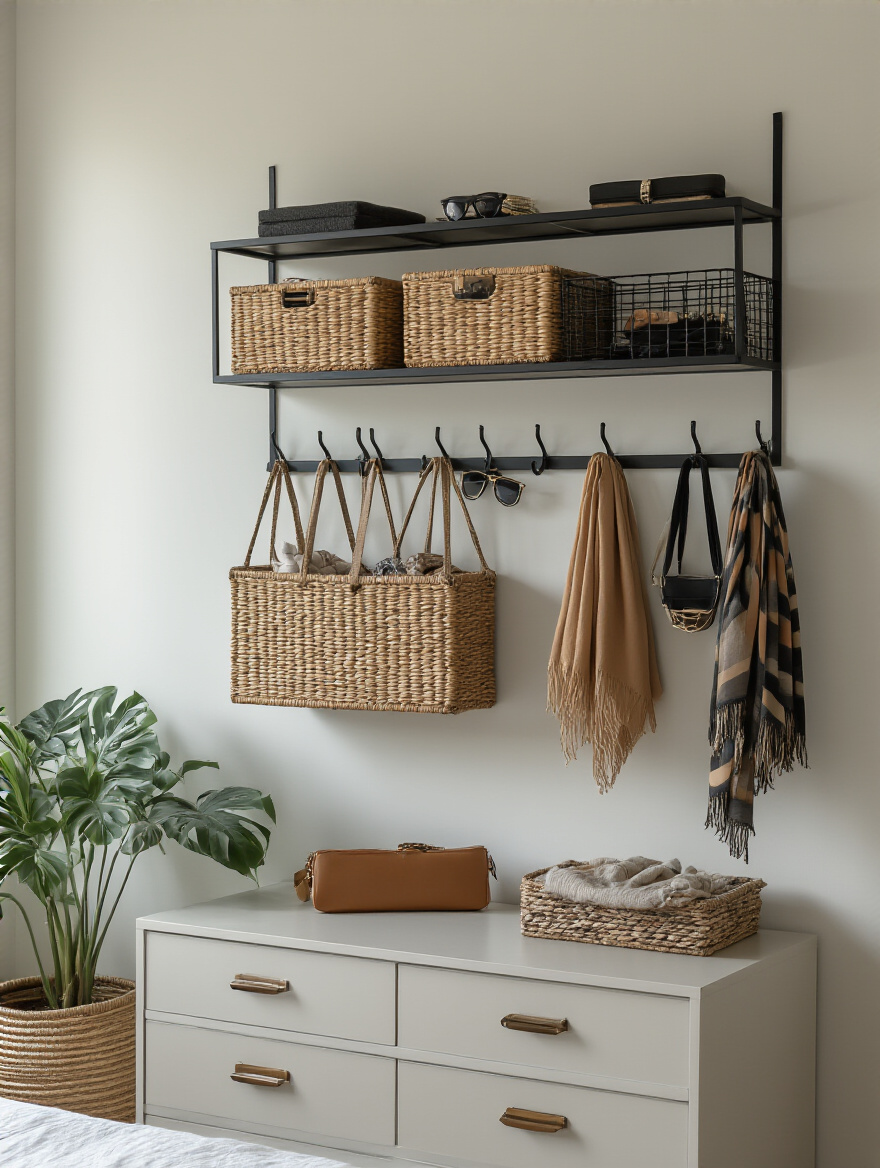
A small wall-mounted wire basket is a perfect “inbox” for mail or a home for your wallet and sunglasses. The goal is to create designated, off-surface landing spots for the things that are always in transit. It’s a five-minute installation that can solve about 50% of your daily surface clutter.
13. Integrate Ottomans or Benches with Concealed Storage for Linens and Throws
Here’s a fantastic trick for social hosts. A storage ottoman or bench at the foot of your bed is a multitasking genius. First, it gives you a place to sit while you put on your shoes. Second, it adds a touch of style. But most importantly, the top lifts up to reveal a hidden storage chest.
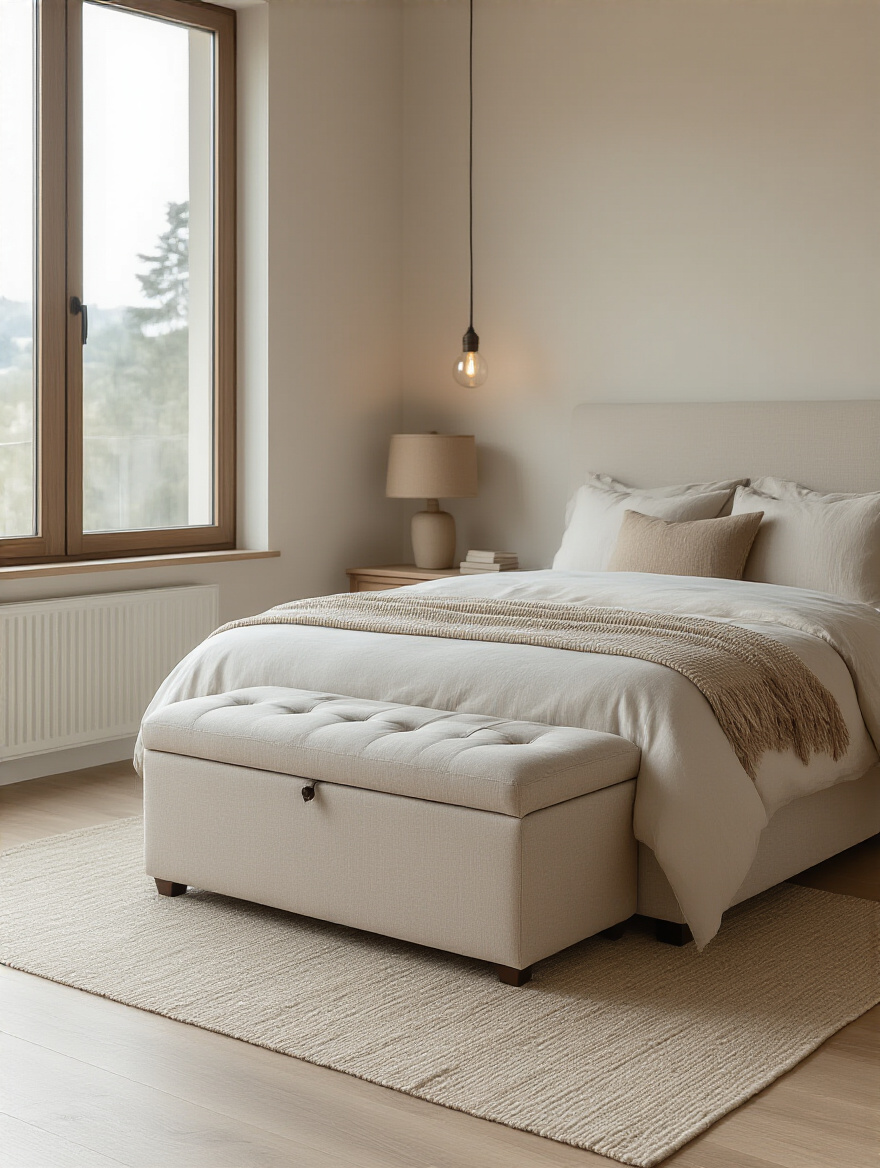
This is the absolute perfect place to store guest-related items like extra blankets, pillows, and linens. It’s also great for your personal collection of throw blankets for movie nights, or even board games and extra video game controllers. It’s social-focused storage that’s hidden in plain sight, keeping your entertaining gear accessible but out of the way.
14. Utilize Back-of-Door Pocket Organizers for Wardrobe Extras or Tech Gadgets
I know we already talked about door organizers, but this is a specific pro-level application. While you can use them for shoes, they are the unsung heroes for every small, annoying piece of tech you own. Every dongle, adapter, USB stick, memory card, and random cable has a home in one of those clear pockets. It’s a visual index of your entire tech-accessory arsenal.
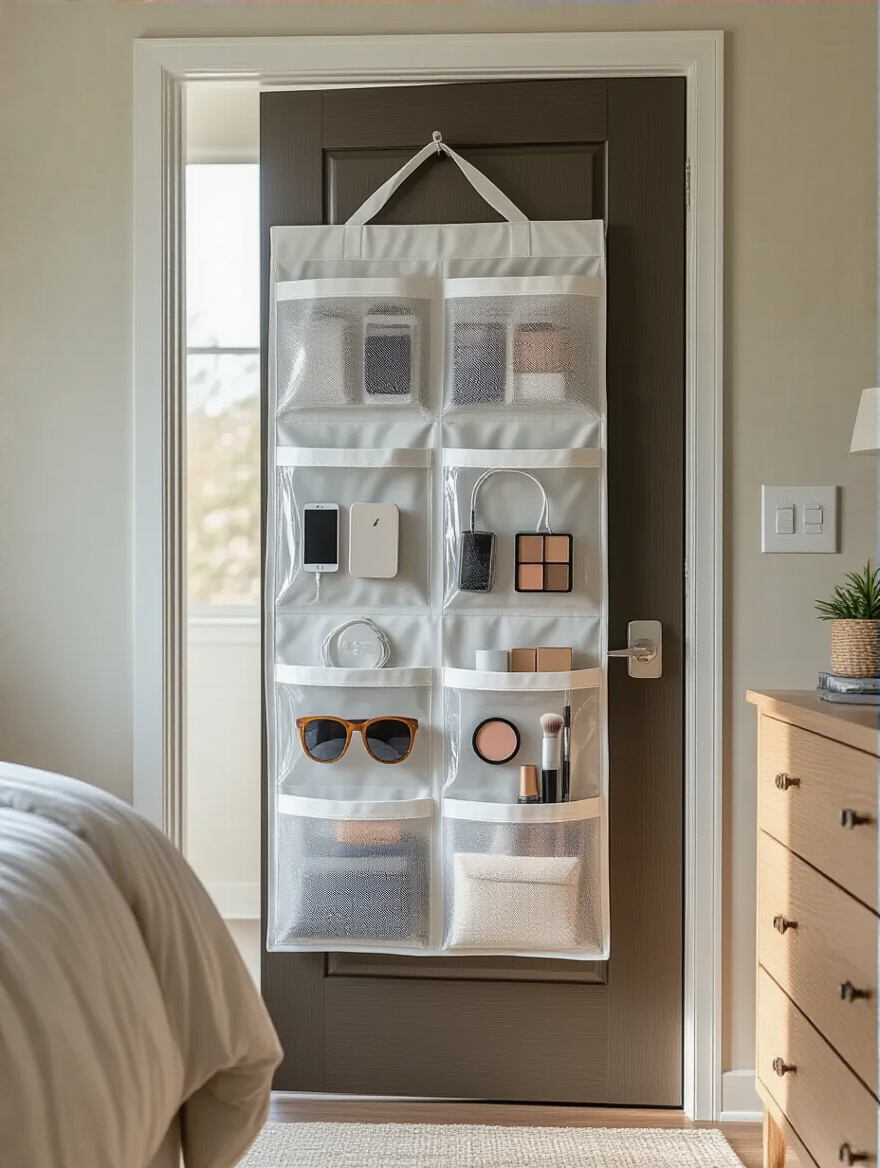
This one tip has saved me more time and frustration than almost any other. No more rummaging through the “doom box” of tangled cables. You just glance at the door, grab what you need, and go. For anyone with a lot of gadgets, this isn’t just a storage solution; it’s a sanity-saving system.
Maintaining Organization & Adding Finishing Touches
You’ve installed the hardware. Now it’s time for the software update. An amazing system is useless if you don’t maintain it. These final touches are about creating the daily habits and micro-systems that keep your space running smoothly, so you never slide back into chaos.
15. Implement Drawer Dividers and Bins for Tidy Internal Organization
This is the secret weapon. A drawer without dividers is a black hole. Everything just slides around and becomes a jumbled mess. Drawer dividers and small bins are like partitioning a hard drive; they create specific, dedicated sectors for everything, so your data (your socks, your t-shirts, your accessories) never gets corrupted.
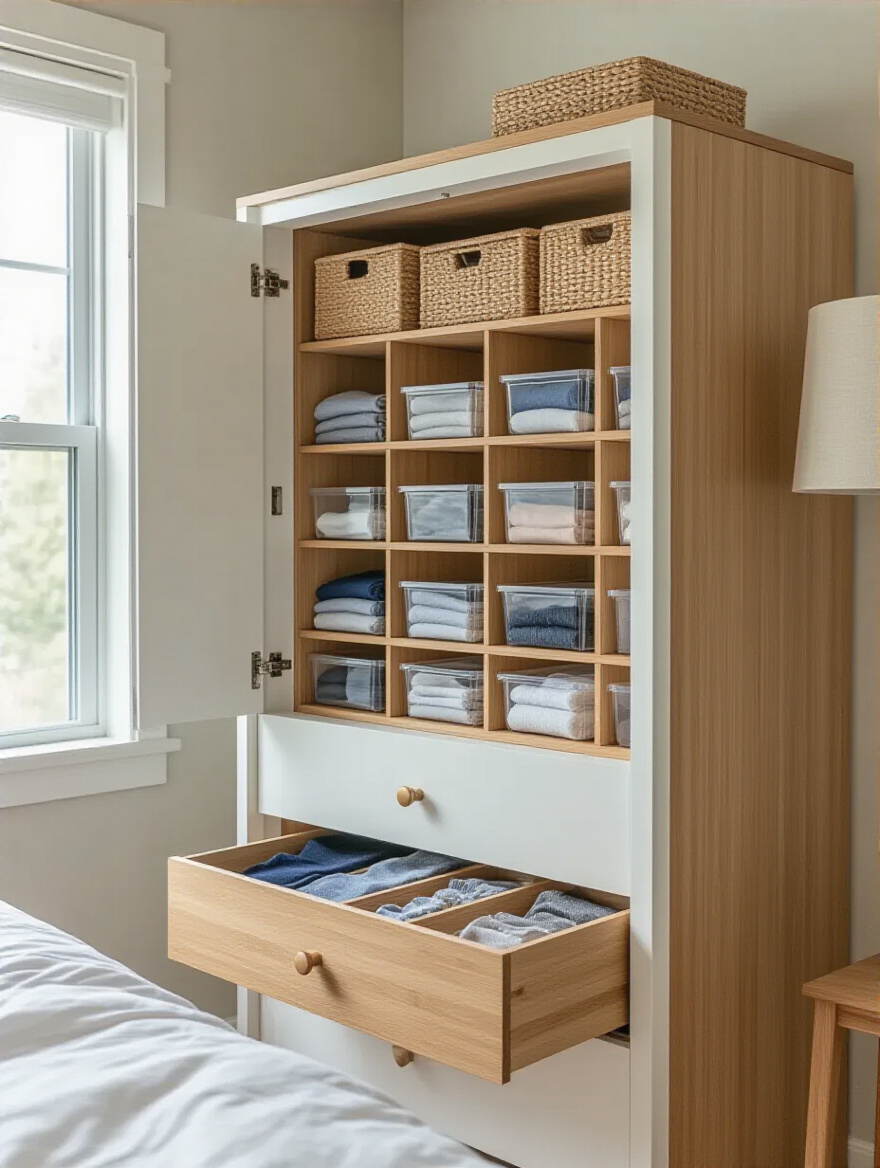
Use adjustable dividers for clothes, and small acrylic or bamboo bins for junk drawer items like batteries, pens, and chapstick. This micro-organization is what separates a temporarily tidy room from a permanently organized one. It makes putting things away just as easy as taking them out, which is the key to maintaining the entire system long-term.
16. Label Storage Containers Clearly to Find Items Effortlessly
If you can’t see what’s inside a box, it needs a label. Period. This is especially true for anything going into long-term storage, like under the bed or on a high closet shelf. A good label maker is a fantastic investment. Get one. Use it. Proper naming conventions are everything.
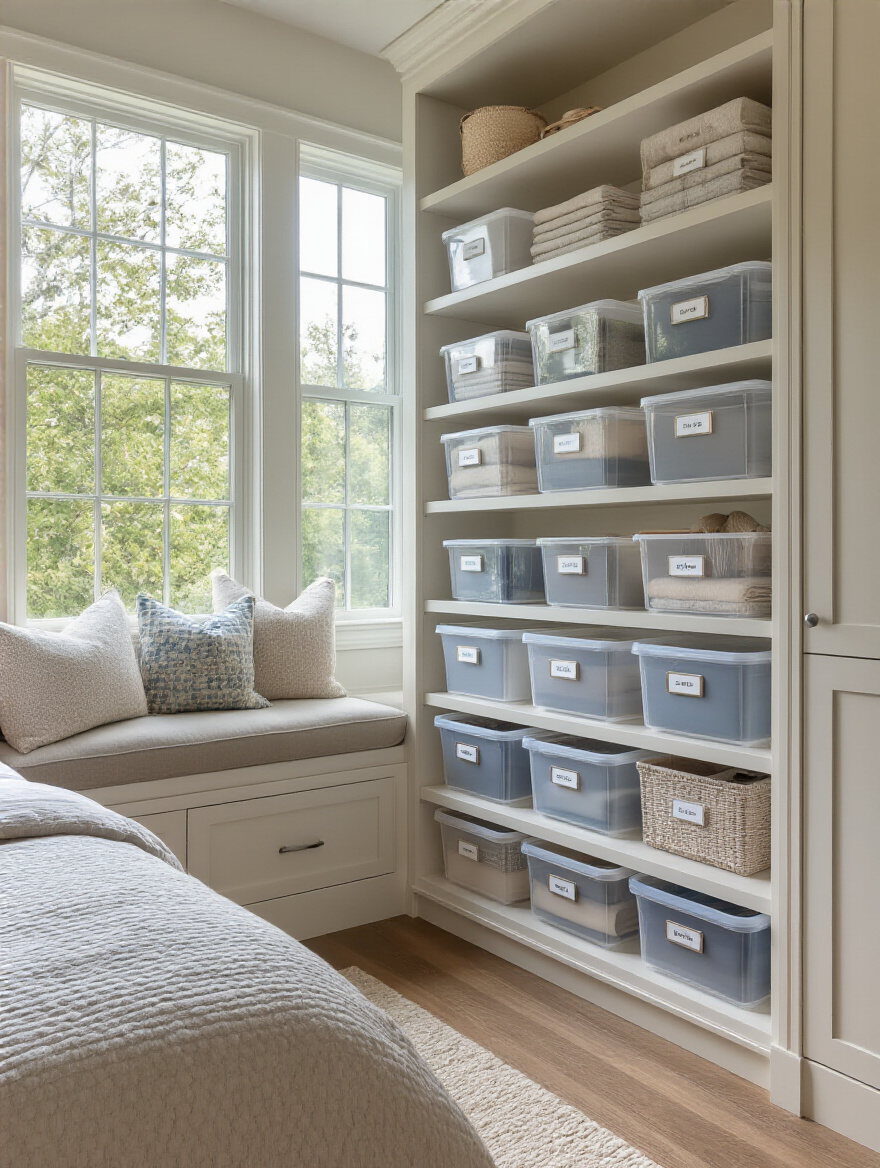
Don’t just write “Clothes.” Be specific: “Winter Sweaters – Cashmere.” Don’t write “Cables.” Be specific: “HDMI & DisplayPort Adapters.” This turns a 10-minute rummaging session into a 10-second retrieval. It feels incredibly professional and satisfying, and it makes your storage system infinitely more powerful.
17. Color-Code Your Wardrobe for Easier Retrieval and Visual Appeal
Okay, this might sound a little extra, but it’s an incredible user interface upgrade for your closet. Organizing your clothes by color, from light to dark within each category (all the white shirts together, then blue, then gray, etc.), does two things. First, it creates this stunning visual effect that makes your closet look like a high-end boutique.
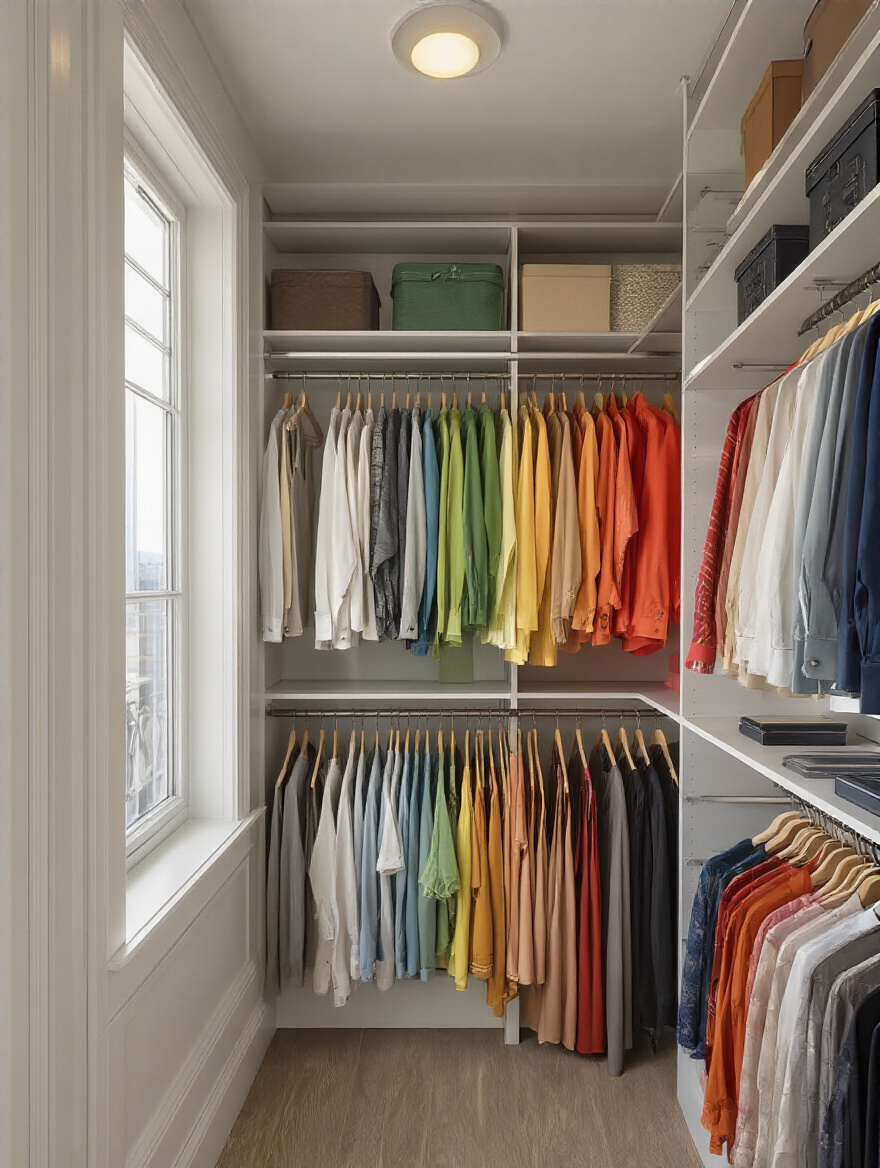
Second, it makes finding things lightning fast. Need a black t-shirt? You know exactly which section to go to. Trying to build an outfit? You can see all your color options laid out like a Pantone swatch book. It’s a simple change that elevates the entire experience of your wardrobe.
18. Incorporate decorative baskets and Boxes for Stylish Concealed Storage
Finally, for all the remaining little bits and pieces that create visual noise—remotes, magazines, a half-finished knitting project—use decorative baskets and boxes. These are your custom enclosures. They hide the “messy wiring” of your daily life while adding texture and style to your room.
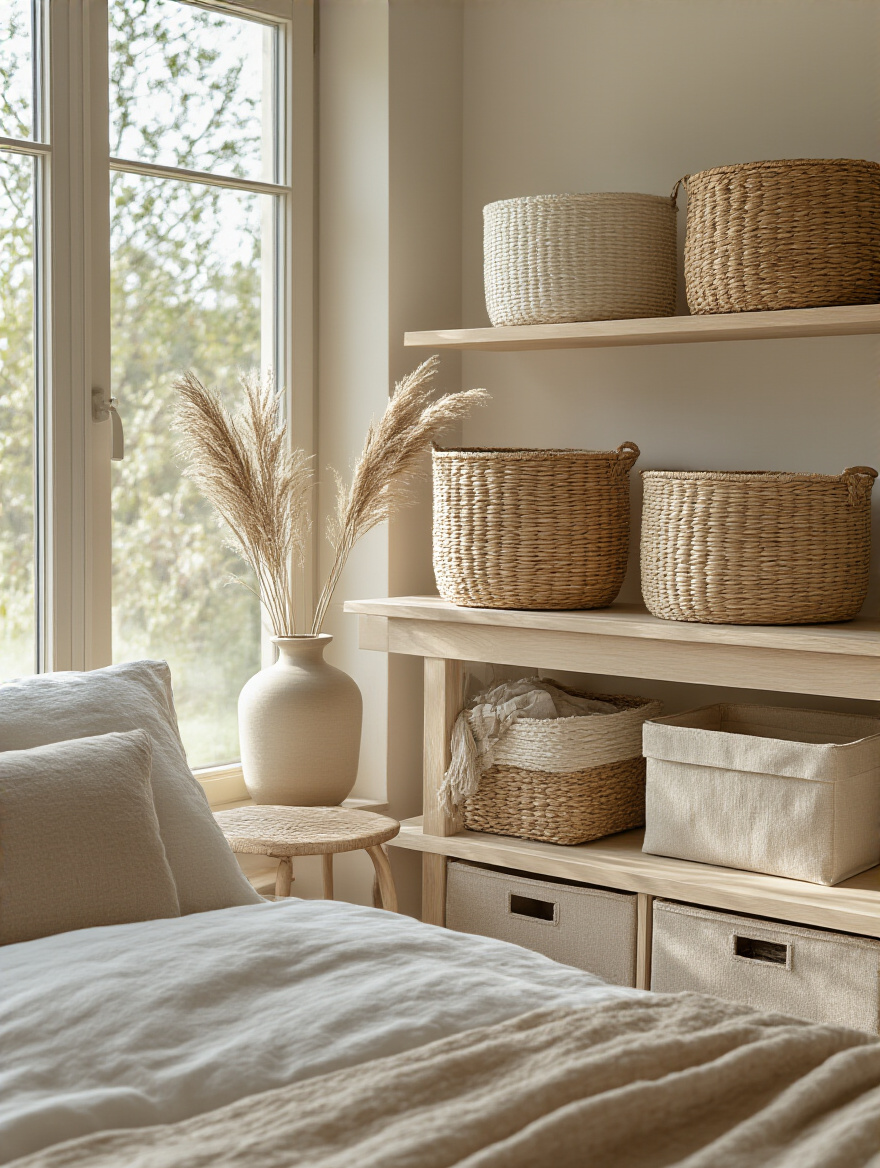
Place a nice basket on a bookshelf or a lidded box on your dresser. It provides a super-fast way to do a “5-minute tidy” before someone comes over. You just sweep all the random surface clutter into its designated stylish home, and instantly, the room looks clean and composed. It’s your secret weapon for looking effortlessly organized.
Conclusion
See? It’s not about becoming a minimalist monk who owns three shirts. It’s about engineering a space that works for you. An organized bedroom isn’t the end goal; it’s the launchpad. It’s the personal sanctuary that recharges you so you can go out and be the amazing host, the creative genius, the fun friend you want to be. When your environment is calm, functional, and reflective of you, your brain has more space to focus on what truly matters.
So don’t get overwhelmed. Just pick one thing from this list. Buy a door organizer. Get some drawer dividers. Start there. Small upgrades lead to big changes in how you feel and function every single day. You’re not just decluttering a room; you’re upgrading your life’s operating system. And a better OS means a better life, better parties, and more amazing memories. Your sanctuary is waiting.
